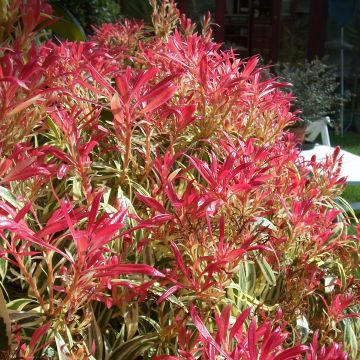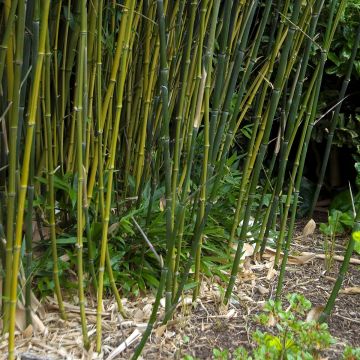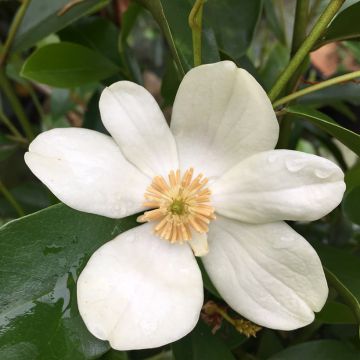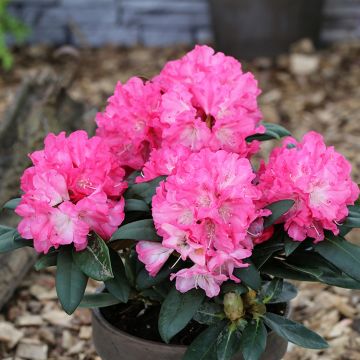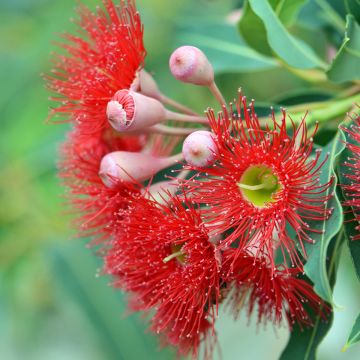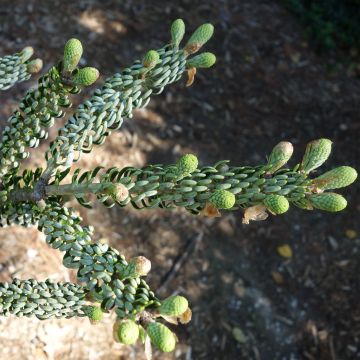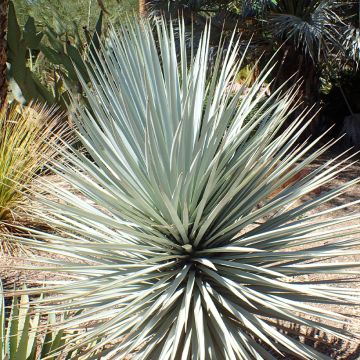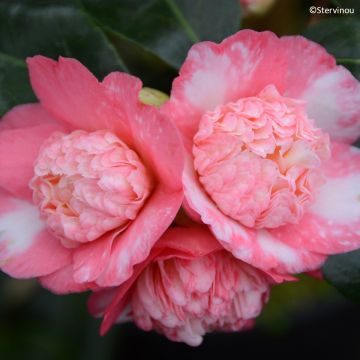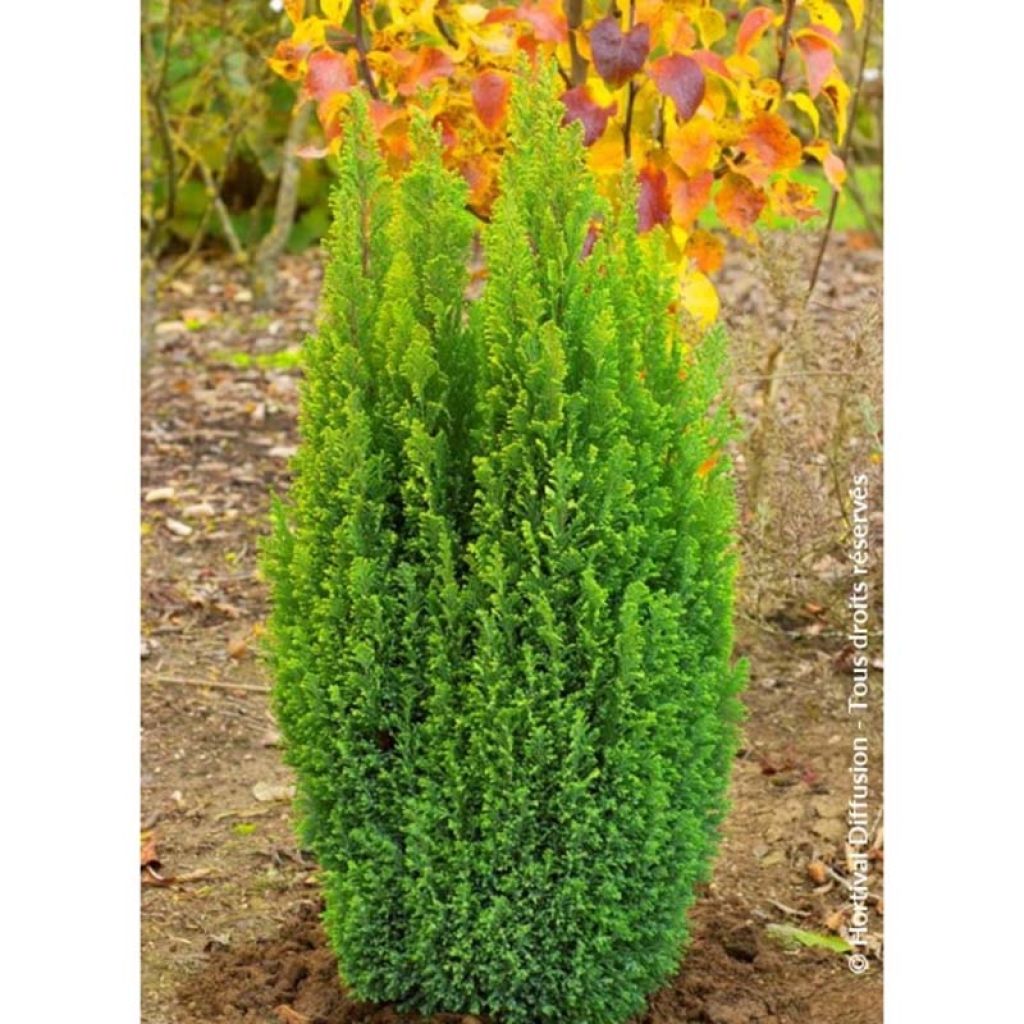

Chamaecyparis lawsoniana Elwoods Gold - Lawson Cypress
Chamaecyparis lawsoniana Elwoods Gold - Lawson Cypress
Chamaecyparis lawsoniana Ellwood's Gold
Lawson's Cypress, False Cypress, Port Orford-cedar, Oregon cedar, White cedar
Plant conforms to the description, small in size but vigorous and harmonious. I am looking forward to spring to provide more precise updates, especially regarding its ability to adapt to its planting location.
Claudette, 24/01/2025
Special offer!
Receive a €20 voucher for any order over €90 (excluding delivery costs, credit notes, and plastic-free options)!
1- Add your favorite plants to your cart.
2- Once you have reached €90, confirm your order (you can even choose the delivery date!).
3- As soon as your order is shipped, you will receive an email containing your voucher code, valid for 3 months (90 days).
Your voucher is unique and can only be used once, for any order with a minimum value of €20, excluding delivery costs.
Can be combined with other current offers, non-divisible and non-refundable.
Home or relay delivery (depending on size and destination)
Schedule delivery date,
and select date in basket
This plant carries a 24 months recovery warranty
More information
We guarantee the quality of our plants for a full growing cycle, and will replace at our expense any plant that fails to recover under normal climatic and planting conditions.

Would this plant suit my garden?
Set up your Plantfit profile →
Description
The Chamaecyparis lawsoniana 'Elwood's Gold' is an interesting variety of Lawson's Cypress for its small development, attractive wide and erect columnar habit, and the beautiful golden colour of its spring foliage. This bright variety also has a very slow growth, qualities that are sought after for decorating small spaces and terraces. While not difficult to cultivate, this conifer appreciates sun and loose, well-drained soil, not too dry.
The Lawson's Cypress, sometimes called false cypress, is a majestic conifer of the Cupressaceae family native to the moist coastal forests of the Pacific Northwest United States. In its environment, it often reaches over 30m (98.4ft) in height, with a trunk approaching 1m (3.3ft) in diameter. Its habit is straight and conical, and its drooping branches form soft curtains dressed in fairly dark, bluish-green foliage. It has given rise to numerous cultivars among which there is a wide choice of plants of modest stature, better suited to the size of our gardens.
The 'Elwood's Gold' variety was introduced by Hillier (GB), before 1968. It is a very pretty reduced form of this species. From a young age, it shows a very dense, conical and regular habit, not exceeding 1.50cm (0.6in) in height and 70cm (27.6in) in width after 10 years of cultivation. At maturity, it will form a bush 3m (9.8ft) tall and 1.50m (4.9ft) wide. It produces many slender and flattened branches, covered with two types of scale-like leaves, intense yellow when they emerge at the end of the branches in spring, later taking on a more greyish-green hue, while retaining beautiful chartreuse highlights depending on the light.
The Chamaecyparis lawsonia 'Elwood's Gold', a true cone of light in spring, is ideal for decorating a rock garden, a flowerbed, or even planted in groups of 3 specimens in a container. It does not require pruning. The real graphic qualities of dwarf conifers deserve to be invited more often into our gardens, to which they bring a permanent structure. These rather insignificant plants in summer reassert themselves in winter when the blooms have deserted our gardens. Perfect in a contemporary setting, which prefers the aesthetics of shapes, silhouettes, and textures over flowers, small conifers also have their place in more classic landscapes: they mark the pathways, line the terrace, easily replacing the strong presence of trimmed boxwood. They serve as a backdrop for small roses, peonies, or tousled grasses. They can also be associated with heathers, other creeping conifers, and ground cover plants. The key is to play with volumes and colours.
Report an error about the product description
Chamaecyparis lawsoniana Elwoods Gold - Lawson Cypress in pictures
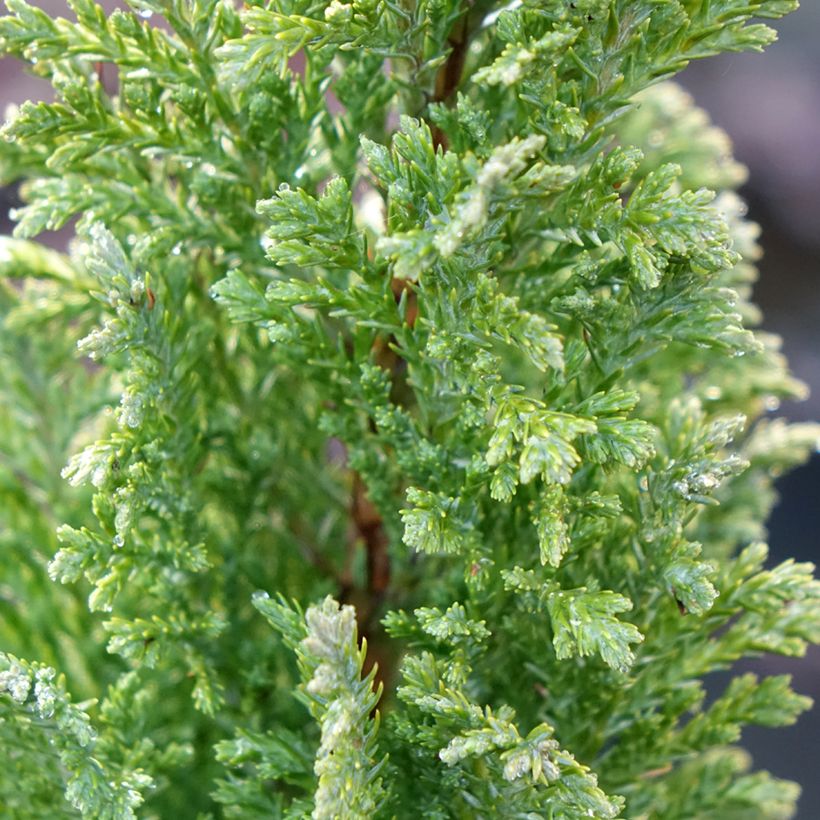

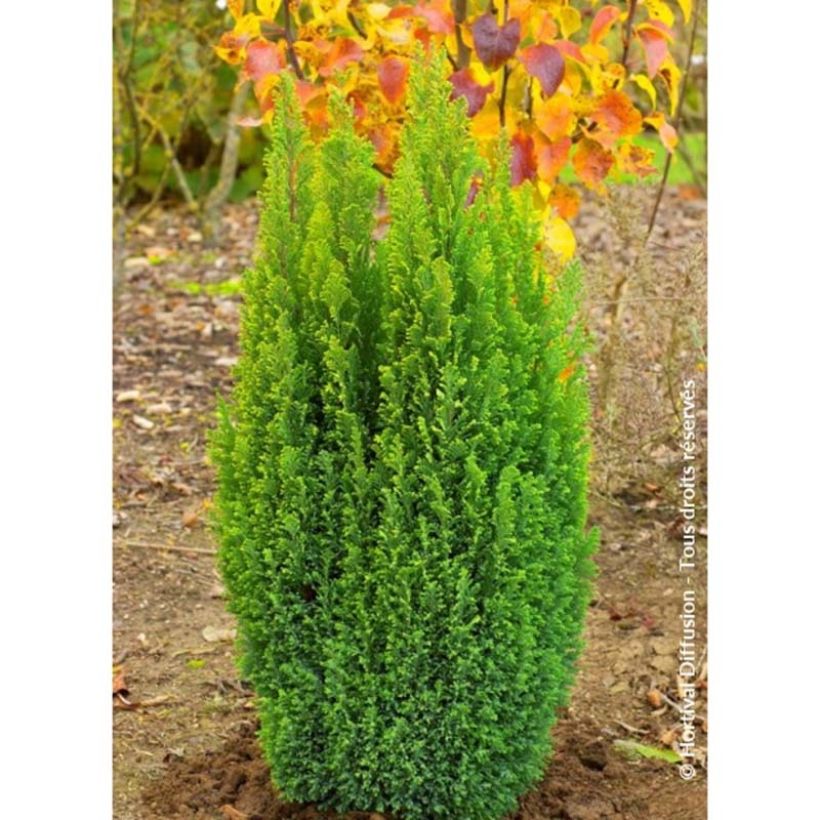

Plant habit
Foliage
Botanical data
Chamaecyparis
lawsoniana
Ellwood's Gold
Cupressaceae
Lawson's Cypress, False Cypress, Port Orford-cedar, Oregon cedar, White cedar
Cultivar or hybrid
Planting and care
The Chamaecyparis lawsonia 'Elwood's Gold' is best planted in spring or autumn, in any well-drained soil, slightly acidic or neutral, or even chalky. This conifer thrives in the sun (in a fairly humid climate) or in partial shade. Water the plants regularly during the months following planting. This conifer is not too demanding on soil quality, but it suffers in excessively dry soils and arid conditions. It is a species adapted to cool, oceanic or mountain climates. This bush does not require pruning, but you can remove unsightly or obstructive branches to accentuate its rounded habit. Remove branches with uniformly green foliage that are much more vigorous and may eventually take over.
Planting period
Intended location
Care
-
, onOrder confirmed
Reply from on Promesse de fleurs
Similar products
Haven't found what you were looking for?
Hardiness is the lowest winter temperature a plant can endure without suffering serious damage or even dying. However, hardiness is affected by location (a sheltered area, such as a patio), protection (winter cover) and soil type (hardiness is improved by well-drained soil).

Photo Sharing Terms & Conditions
In order to encourage gardeners to interact and share their experiences, Promesse de fleurs offers various media enabling content to be uploaded onto its Site - in particular via the ‘Photo sharing’ module.
The User agrees to refrain from:
- Posting any content that is illegal, prejudicial, insulting, racist, inciteful to hatred, revisionist, contrary to public decency, that infringes on privacy or on the privacy rights of third parties, in particular the publicity rights of persons and goods, intellectual property rights, or the right to privacy.
- Submitting content on behalf of a third party;
- Impersonate the identity of a third party and/or publish any personal information about a third party;
In general, the User undertakes to refrain from any unethical behaviour.
All Content (in particular text, comments, files, images, photos, videos, creative works, etc.), which may be subject to property or intellectual property rights, image or other private rights, shall remain the property of the User, subject to the limited rights granted by the terms of the licence granted by Promesse de fleurs as stated below. Users are at liberty to publish or not to publish such Content on the Site, notably via the ‘Photo Sharing’ facility, and accept that this Content shall be made public and freely accessible, notably on the Internet.
Users further acknowledge, undertake to have ,and guarantee that they hold all necessary rights and permissions to publish such material on the Site, in particular with regard to the legislation in force pertaining to any privacy, property, intellectual property, image, or contractual rights, or rights of any other nature. By publishing such Content on the Site, Users acknowledge accepting full liability as publishers of the Content within the meaning of the law, and grant Promesse de fleurs, free of charge, an inclusive, worldwide licence for the said Content for the entire duration of its publication, including all reproduction, representation, up/downloading, displaying, performing, transmission, and storage rights.
Users also grant permission for their name to be linked to the Content and accept that this link may not always be made available.
By engaging in posting material, Users consent to their Content becoming automatically accessible on the Internet, in particular on other sites and/or blogs and/or web pages of the Promesse de fleurs site, including in particular social pages and the Promesse de fleurs catalogue.
Users may secure the removal of entrusted content free of charge by issuing a simple request via our contact form.
The flowering period indicated on our website applies to countries and regions located in USDA zone 8 (France, the United Kingdom, Ireland, the Netherlands, etc.)
It will vary according to where you live:
- In zones 9 to 10 (Italy, Spain, Greece, etc.), flowering will occur about 2 to 4 weeks earlier.
- In zones 6 to 7 (Germany, Poland, Slovenia, and lower mountainous regions), flowering will be delayed by 2 to 3 weeks.
- In zone 5 (Central Europe, Scandinavia), blooming will be delayed by 3 to 5 weeks.
In temperate climates, pruning of spring-flowering shrubs (forsythia, spireas, etc.) should be done just after flowering.
Pruning of summer-flowering shrubs (Indian Lilac, Perovskia, etc.) can be done in winter or spring.
In cold regions as well as with frost-sensitive plants, avoid pruning too early when severe frosts may still occur.
The planting period indicated on our website applies to countries and regions located in USDA zone 8 (France, United Kingdom, Ireland, Netherlands).
It will vary according to where you live:
- In Mediterranean zones (Marseille, Madrid, Milan, etc.), autumn and winter are the best planting periods.
- In continental zones (Strasbourg, Munich, Vienna, etc.), delay planting by 2 to 3 weeks in spring and bring it forward by 2 to 4 weeks in autumn.
- In mountainous regions (the Alps, Pyrenees, Carpathians, etc.), it is best to plant in late spring (May-June) or late summer (August-September).
The harvesting period indicated on our website applies to countries and regions in USDA zone 8 (France, England, Ireland, the Netherlands).
In colder areas (Scandinavia, Poland, Austria...) fruit and vegetable harvests are likely to be delayed by 3-4 weeks.
In warmer areas (Italy, Spain, Greece, etc.), harvesting will probably take place earlier, depending on weather conditions.
The sowing periods indicated on our website apply to countries and regions within USDA Zone 8 (France, UK, Ireland, Netherlands).
In colder areas (Scandinavia, Poland, Austria...), delay any outdoor sowing by 3-4 weeks, or sow under glass.
In warmer climes (Italy, Spain, Greece, etc.), bring outdoor sowing forward by a few weeks.































